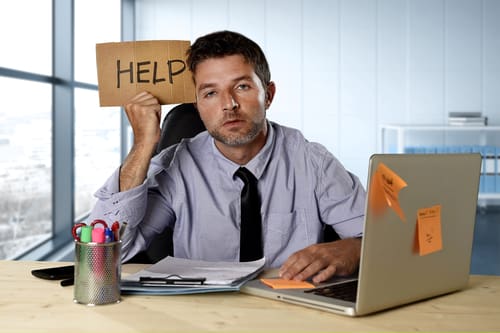
We all need help. Yet, it’s a curious thing that needing help can often leave us feeling helpless.
Help is important as we navigate life. There is a lot to wade through, challenges to meet, deadlines to honor, things we need to know — sometimes we don’t know, sometimes we are overwhelmed by everything we have to do, sometimes the challenges seem insurmountable. In those times, it is natural to reach out for help. We are a community of people who need one another.
Why then is asking for help so often a challenge — one that can evoke shame and a deep felt sense of helplessness? I think about little babies who rely on someone else to “help” them get all of their needs met — the most basic ones of life actually. Food, sleep, change of diaper, active engagement with another. Baby looks to Mom and other caregivers for help with everything because baby is helpless to do any of these things for himself.
Now, here is an interesting question. Do you know how your caregiver treated you when you had all of those needs and had to have them by met by him or her? Often it is this early knowing of how our helpless selves’ needs were met that can clue us into how, as adults, we ask for and receive help from others. If, as babies, our parents did not do a good job at meeting our needs when we were helpless to meet them ourselves, it can often leave us with a felt sense in our implicit memory (the memories we hold before we consciously are aware of remembering) that to have our needs is to be too much to other people – needing help makes us feel helpless. Often out of this felt sense. we seek to help ourselves as we have had to all of our lives without relying on others.
Needing help leads to an uncomfortable feeling of helplessness that we seek to avoid. So, how can we need help and not feel the despair of being helpless? One, recognize that all of us need help at times. It may not be for every basic need we had as infants, but help is necessary and needed throughout our lives.
Second, equating needing help to being helpless is a misnomer. Often needing help is you recognizing your needs and getting them met — which is the exact opposite of being helpless. Taking action to get help is antithetical to being helpless.
Third, if this idea resonates within you or causes you anxiety, i.e. your need for help leads you to feeling helpless, it may be a good topic to bring in to your therapist to explore as this patterned thinking may have been set from your early days with how your earliest needs were or were not met. This type of therapeutic processing may help you let go of feeling that your needs, particularly for help, is something to feel ashamed of rather than applauded.
I am reminded of Dumbledore’s own advice to Harry Potter regarding help and how it is given at Hogwarts. Please remember, you deserve help.
I remember the famous Harry Potter movies and Dumbledore telling Harry about hel
